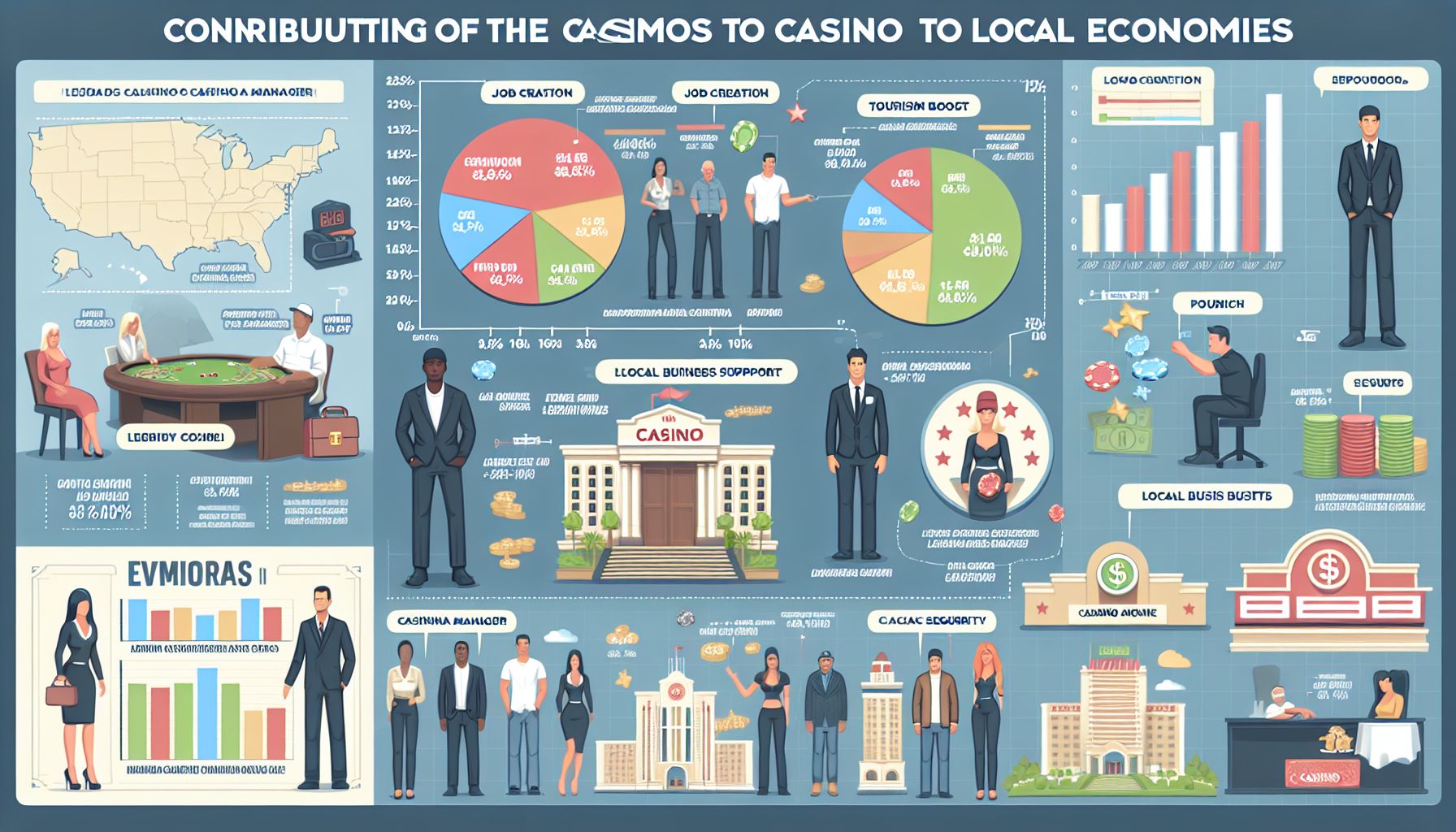When most people think of casinos, they often picture bright lights, slot machines, and the clinking of coins. While these images may accurately depict the atmosphere of a casino, there is much more to these establishments than meets the eye. In fact, casinos play a significant role in not just the entertainment industry, but also in the local economies of the communities they reside in. The impact of casinos on local economies has been a topic of much debate, with proponents touting their potential for economic growth and opponents warning of potential negative consequences. In this blog post, we will take a closer look at the role of casinos in local economies, exploring both the positive and negative effects they can have.
The Economic Benefits of Casinos
One of the main arguments in favor of casinos is their potential to bring in substantial amounts of revenue for local economies. When a casino is built in a community, it often creates numerous job opportunities. From dealers and cashiers to hotel staff and security personnel, casinos require a large workforce to operate smoothly. This influx of job openings can be especially beneficial for areas with high unemployment rates, as it provides residents with much-needed employment opportunities.
But the benefits do not stop at job creation. Casinos also contribute to the local economy through the purchase of goods and services from nearby businesses. For example, casinos often require supplies such as food and beverages, cleaning services, and entertainment for their guests. This creates a ripple effect, as the businesses providing these goods and services experience increased economic activity. Furthermore, casinos usually pay taxes to the local government, which can provide a significant source of funding for public services and projects.
The Dark Side of Casinos
While casinos do bring in revenue and create jobs, they are not without their downsides. One of the main concerns surrounding casinos is their potential to cause an increase in problem gambling. This can result in individuals and families facing financial strain and other negative consequences, ultimately leading to a decrease in the overall economic well-being of the community.
Another issue that arises with casinos is the displacement of other businesses. When a casino is built in a community, it often becomes the main source of entertainment. This can lead to the closure of other businesses, such as bars, restaurants, and theaters, as they struggle to compete with the allure of a casino. As a result, this can have a negative impact on the local economy, as these businesses may not be able to survive without the support of casino-goers.
The Case for Responsible Gambling
To combat the potential negative effects of casinos, it is essential for responsible gambling practices to be implemented and enforced. This includes measures such as age restrictions, limits on gambling time and spending, self-exclusion programs, and the provision of resources for those struggling with gambling addiction. Responsible gambling can help minimize the negative consequences of casinos and ensure that they are not contributing to social issues within the community.
Not only is responsible gambling beneficial in terms of societal well-being, but it is also in the best interest of casinos themselves. By promoting responsible gambling, casinos can maintain a positive image and build trust with their customers. This can lead to customer loyalty and repeat business, ultimately benefiting the casino’s bottom line.
The Impact of Tourism
Another significant aspect of casinos’ role in local economies is their potential to attract tourists and boost the tourism industry. Casinos often offer luxurious amenities, such as fine dining, entertainment shows, and hotel accommodations, making them a popular destination for travelers. This influx of tourism can bring in significant revenue for the local economy, as visitors spend money not just in the casino but also in surrounding businesses.
Moreover, casinos can also have a positive impact on the real estate market. When a casino is built in a community, it can drive up property values in the surrounding area. This can be beneficial for homeowners and small businesses, as their properties become more valuable, potentially leading to increased investments and development in the area.
The Long-Term Effects
While casinos can bring short-term economic benefits, it is important to consider the long-term effects as well. In the initial boom of a newly built casino, the economy may seem to be thriving. However, some studies have shown that over time, the economic impact of a casino may decrease. This is because casinos often rely on repeat business from local residents, rather than from tourists. As a result, the constant flow of money through the casino may only be circulating within the community, rather than being injected into it.
Furthermore, a community’s reliance on a casino for economic growth may also lead to issues. As seen in the recent COVID-19 pandemic, the closure of casinos due to restrictions and lockdowns has resulted in significant economic impacts for the communities that heavily rely on them.
Conclusion
In conclusion, the role of casinos in local economies is complex and multi-faceted. While they can bring in revenue, create jobs, and boost the tourism industry, they can also have negative effects, such as problem gambling and the displacement of other businesses. It is crucial for responsible gambling measures to be in place to minimize these negative consequences and ensure the long-term sustainability of casinos’ economic impact. Additionally, it is essential for communities to consider the potential long-term effects of relying solely on a casino for economic growth. When managed responsibly, casinos can contribute to the growth and prosperity of a community, but it is essential to carefully consider their role and impact on the local economy.



